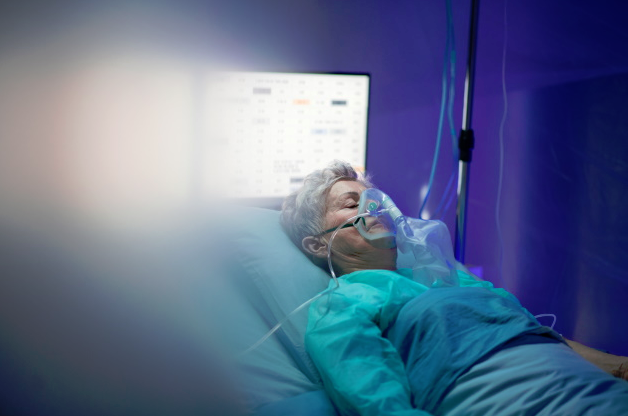How a New Study Can Help Identify Patients at Risk for COVID-19 Due to Lifestyle Choices
By Lisa Mulcahy, via Multibriefs
August 13, 2020

As a healthcare professional, you understand the importance of testing and treating at-risk patients for COVID-19 as quickly as possible. A new study from Carnegie Mellon University can change the way you ID these patients. Professor Sheldon Cohen's article, "Psychosocial Vulnerabilities to Upper Respiratory Infectious Illness: Implications for Susceptibility to Coronavirus Disease 2019 (COVID-19)," reports that unhealthy lifestyle choices such as smoking, avoiding exercise, and avoiding all social contact during the pandemic may make patients more susceptible to respiratory infections like COVID-19 and put them at risk for the worst outcomes.
For 35 years through the Common Cold Project, Cohen's lab has analyzed the role certain psychosocial elements can play in terms of spreading respiratory diseases. His new work delved into those years of research and came up with some intriguing and useful conclusions that can be applied to the current pandemic.
Among the article's conclusions: many of the poor lifestyle factors that contribute to the risk of a patient developing cancer and cardiovascular disease may also raise one's odds of contracting respiratory infection. For example, social support seemed to provide a "shield" against virus infection.
The isolation that quarantine measures cause may adversely affect the immune system, so keeping in contact with friends and family from a distance is crucial to physical and emotional well-being. Also, psychological stress, such as losing your job due to the pandemic, can affect the immune system.
Why do lack of human contact and stress specifically cause problems? It's because stress can cause the body to produce too many proinflammatory chemicals, known as cytokines, which can increase the odds of getting sick.
How can you use these invaluable findings to ID patients at risk and help your general patient population better prevent infection, too? Follow these key guidelines to help prevent infection, as well as improve the odds for COVID-19 patients you're already treating:
Update and increase your patient survey to ID these risk factors early. Initial screening and triage of all patients, both in your ER and at practice locations, should include asking about lifestyle risk factors that could indicate a patient is at higher risk for COVID-19. Immediate testing can then be done on vulnerable patients, especially if they are potentially symptomatic.
Stress the importance of limiting alcohol, not smoking, and getting enough sleep and exercise to all patients you see in person and via telehealth. Explain to your patients that the wise decisions they can make to stay heart-healthy and to slash their cancer odds may also be of powerful help in terms of protecting them against COVID-19.
Encourage patients to keep up remote social connections through phone, Zoom, email and text with family and friends. Suggest that your patients set aside a daily or weekly time to reach out and catch up so that they will consistently feel better, enjoy positive connections, and have some fun.
Promote self-care and self-kindness for patients who are isolated during the pandemic. Remind your patients that we are all living through an extremely difficult, unprecedented experience in our lives. Let them know that expecting themselves to be perfect is unrealistic — tell them it's OK to feel any emotion they have.
Encourage them to pursue hobbies they love, enjoy resting their minds and bodies whenever they can without feeling guilty, and suggest they look at this as a time of great personal strength. Tell your patients they should feel great about doing the best they can right now — and remind them that this time will indeed pass.
That kind of positive and hopeful reinforcement can have a huge impact when it comes to their best health outcomes. Use it to help your facility and providers prevent overall COVID-19 infections — and be of greater assistance to patients at high risk.
Lisa Mulcahy is an internationally established health writer whose credits include the Los Angeles Times, Redbook, Glamour, Elle, Cosmopolitan, Health, Good Housekeeping, Parade, Woman's Day, Family Circle and Seventeen. She is the author of eight best-selling books, including "The Essentials of Theater," an Amazon No. 1 new release.
|
